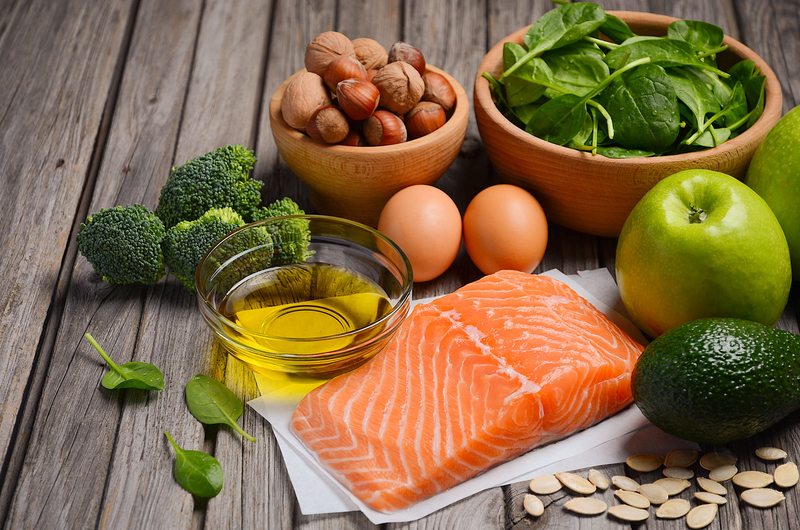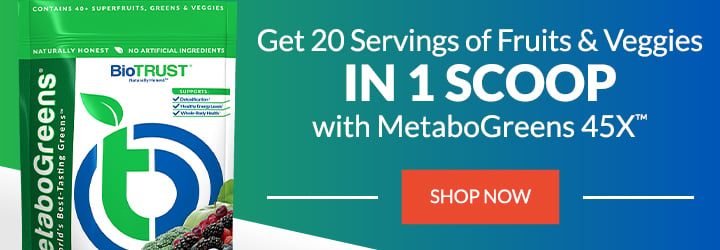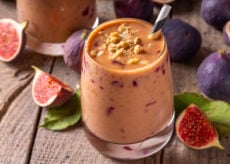The Top 12 Foods That Promote Breast Health

If you have noticed a lot of pink (e.g., pink ribbons) this month, it isn’t your imagination. Pink has been popping up more than usual as it’s the color chosen to raise awareness for breast cancer, and October is Breast Cancer Awareness Month. The intent is to increase attention and support for early detection, treatment, and prevention. Not surprisingly, some of the best preventive care begins at home with a diet full of the best foods for breast health.
In addition, various organizations and breast cancer charities, such as the American Cancer Society, The Breast Cancer Research Foundation, Susan G. Komen Foundation, and the Brandon Greening Foundation for Breast Cancer in Men, use this month to raise funds for research into the causes, prevention, diagnosis, treatment, and cure for this widespread illness.
Worldwide, there are about 1.38 million new cases of breast cancer every year, with around 458,000 deaths. In 2019 in the U.S. alone, 268,600 new cases of invasive breast cancer were estimated for women and 2,670 cases for men. An estimated 41,760 women and 500 men are expected to die from breast cancer this year. It’s by far the most common cause of cancer in women, as one in eight women (13%) will be diagnosed at some point in her lifetime, and one in 39 women (3%) will die from the disease. While rare, men can also suffer from breast cancer. 1
Risk Factors for Breast Cancer
There are several well-established risk factors for breast cancer, many of which are modifiable, which simply means they are risk factors you can change. These include:
- Excess body weight, obesity, and weight gain
- Higher body fat levels even when weight and BMI are in normal ranges for post-menopausal women (Interestingly, excess body weight appears to reduce the risk for premenopausal women.)
- Physical inactivity
- Use of estrogen with progestin menopausal hormones
- Alcohol consumption (with an increased risk of 7 to 10% for every drink consumed per day)
- Tobacco use, especially heavy smoking before having children (second-hand smoke can also increase the risk)
- Not breastfeeding
- Night-shift work, as well as frequent circadian rhythm disruption, especially for young women
There are other risk factors, however, that you have much less control over (or none at all), including:
- Early menarche (i.e., first menstruation)
- Late menopause
- Family history/genetic predisposition
- Breast density
- Environmental exposure to radiation, chemicals, and pollutants
Hormonal changes are considered to be one of the biggest factors influencing breast cancer risk, as fluctuations in hormones can increase cell division, increase DNA damage, and promote cancer growth. 1
Diet and Breast Cancer?
What about diet? Can what you eat affect your risk of breast cancer? Indeed. In fact, women may be able to cut their risk of breast cancer by up to two-thirds by loading up on good nutrition while managing their weight. Yet, there is a lot of confusion about the best way to do so. For example, many people have cut down on fat to decrease their risk, but a recent meta-analysis has found no association between breast cancer and fat consumption. 2
It’s long been thought that increasing the consumption of soy products can reduce the risk of breast cancer. However, this appears to apply to Asian women but not to Western populations. 3
In contrast, there is growing evidence that consuming higher amounts of vegetables and fruits may reduce the risk largely due to the increased consumption of carotenoids. 4-9 Calcium-rich diets also appear to positively influence the risk of breast cancer. 5
The 12 Best Foods for Breast Health
Here are the top 12 foods for breast health to help tip the odds in your favor:
1) Blueberries, peaches, and nectarines all have high levels of antioxidants known as polyphenols that may help annihilate cancer cells while leaving healthy cells untouched. Research suggests having two servings per week of berries and two servings per week of peaches or nectarines helps support breast health. 10 Don’t just stop there, though. Eat a rainbow of nutrient-rich fruits and vegetables for their protective polyphenols, such as carotenoids.
2) Pomegranates are another promising food for breast health due to their high ellagitannin content, which may inhibit activity of aromatase (the enzyme responsible for converting androgenic hormones, like testosterone, to estrogens) and cancer cell growth. 11,12,13
3) Broccoli and other cruciferous vegetables high in sulforaphane, like cabbage, cauliflower, Brussels sprouts, bok choy, kale, collards, mustard greens, and watercress, may help reduce the spread and recurrence of breast cancer stem cells, according to research from the University of Michigan. 14,15,16 These veggies also contain another phenol called indole-3-carbinol (I3C), which helps support healthy estrogen metabolism and helps maintain an optimal balance of estrogens, which are more than just one hormone.
4) Celery, parsley, thyme, onions, and oranges all provide appreciable amounts of the phenol apigenin, which may boost resistance to cancerous tumors and is also a potent antioxidant and anti-inflammatory. 17,18,19
5) Mushrooms have also been associated with a strong decreased risk of breast cancer in post-menopausal women. 20,21 One study found that women who ate 10 grams or more (which comes out to less than one mushroom) of fresh mushrooms per day were up to two-thirds less likely to develop breast cancer. 22
6) Walnuts are an excellent food for breast health due to their rich supply of amino acids and the omega-3 fatty acid alpha linolenic acid (ALA), along with phytosterols, polyphenols, carotenoids, melatonin, and other antioxidants. 23 In fact, animal research with implanted human breast cancers in the journal Nutrition and Cancer found increasing the consumption of walnuts may deter the growth of cancer cells. 24,25 The regular consumption of other legumes and nuts, like peanuts and almonds, has also been found to have a potential protective effect. 26
7) Flax seeds and other foods high in lignans, an important class of phytoestrogens, help protect against breast cancer. 27
8) Beans, lentils, peas, and other high-fiber foods may also decrease the risk of breast cancer, and it appears that the more you eat, the greater decrease in risk. One study found that with every 10 grams of added fiber daily, there was a decreased risk of up to 7%. 28,29,30
9) Wild-caught salmon and other fatty fish (e.g., sardines, mackerel, tuna) contain omega-3 fats (i.e., EPA and DHA), essential fatty acids that have been shown to support healthy levels of inflammation, which may contribute to breast cancer. 31,32,33 Shoot for eight ounces per week to improve breast health and help prevent breast cancer and improve survivorship. 34
10) Fermented dairy foods like yogurt and kefir have also been found to decrease the risk of developing breast cancer 35 due to the immune-enhancing effects of the probiotics they contain.
11) Olive oil provides antioxidants and the monounsaturated fat oleic acid, which have both been shown to help diminish the growth of malignant cells. 36,37,38
12) Green tea is high in polyphenols that have been associated with a decreased risk of breast cancer. 39,40 When green tea was combined with a greater intake of dietary mushrooms, risks decreased even more. 22
Finally, ensuring you maintain a healthy weight and exercise regularly are two of the best ways to decrease your risk and improve your breast health. Fortunately, you are at the right place for tons of actionable information to help you move your body (and have fun exercising) and eat delicious, easy-to-prepare nutrient-packed recipes.
While there is no food, exercise, or action plan that can guarantee pristine breast health and completely abolish the risk of breast cancer, there are ways to help nudge the odds in your favor for both decreased risk and increased chance of survivorship. With Breast Cancer Awareness Month reminding us of the importance, we continue to make new discoveries, so hopefully one day, breast cancer will be a distant memory.




 7 Signs Your Body is Seriously Low on Collagen (not just wrinkles)
7 Signs Your Body is Seriously Low on Collagen (not just wrinkles) Health Expert: "Turmeric Doesn't Work (unless...)"
Health Expert: "Turmeric Doesn't Work (unless...)" 3 Warning Signs Your Probiotic Supplement is a Total Waste
3 Warning Signs Your Probiotic Supplement is a Total Waste

